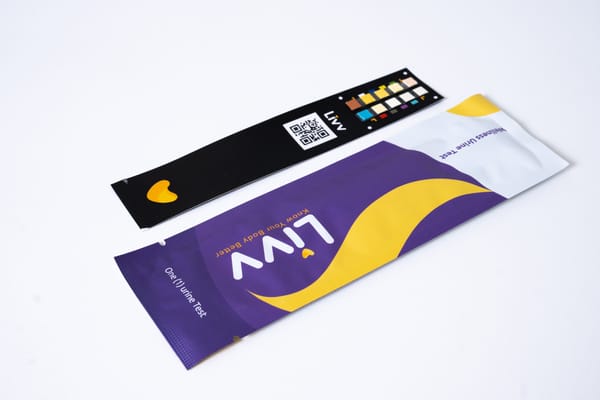From Stress to Success: Tracking Your Wellness

In today’s fast-paced world, stress has become an almost inevitable part of life. Whether it stems from work deadlines, personal responsibilities, or the never-ending buzz of digital connectivity, stress can take a significant toll on our physical, mental, and emotional well-being. However, the journey from stress to success is not only possible but also achievable when we prioritize tracking and managing our wellness. By understanding stress, adopting proactive strategies, and leveraging tools for wellness tracking, we can cultivate a life of balance and fulfillment.
Understanding Stress: The First Step to Wellness
Stress is a natural response to challenges and demands, but when it becomes chronic, it can lead to burnout and health complications. Studies show that prolonged stress can contribute to conditions such as anxiety, depression, cardiovascular disease, and weakened immunity. Recognizing the signs of stress, such as fatigue, irritability, and difficulty concentrating, is the first step toward addressing it.
Stress is not inherently negative — in small doses, it can motivate us to meet goals and solve problems. However, when stress outweighs our coping mechanisms, it becomes harmful. The key is learning to manage stress effectively and turning it into a catalyst for personal growth and success.
The Importance of Tracking Wellness
Tracking wellness is a powerful tool for gaining insight into our health and well-being. By monitoring factors such as sleep, diet, physical activity, and mental health, we can identify patterns and make informed decisions to improve our quality of life. Wellness tracking is not just about collecting data; it’s about creating a personalized roadmap to better health.
For example, tracking your sleep patterns can reveal whether you’re getting enough restorative rest, which is essential for managing stress. Similarly, keeping a food diary can help you identify how your diet impacts your mood and energy levels. With this information, you can make small, meaningful changes that have a big impact on your overall well-being.
Strategies for Managing Stress
- Mindfulness and Meditation Mindfulness and meditation are proven techniques for reducing stress and enhancing emotional resilience. These practices involve focusing on the present moment and letting go of negative thoughts. Just a few minutes of mindfulness meditation each day can lower cortisol levels, improve concentration, and promote a sense of calm.
- Physical Activity Exercise is a natural stress reliever. Physical activity releases endorphins, the body’s “feel-good” hormones, which boost mood and reduce anxiety. Whether it’s a brisk walk, yoga, or a high-intensity workout, finding a form of exercise you enjoy can make stress management feel less like a chore and more like a reward.
- Time Management Poor time management often exacerbates stress. Learning to prioritize tasks, delegate responsibilities, and set realistic goals can help reduce feelings of being overwhelmed. Tools like planners and scheduling apps can assist in organizing your time effectively, leaving room for relaxation and self-care.
- Social Connections Building and maintaining strong social connections can provide emotional support and reduce stress. Sharing your feelings with trusted friends or family members can lighten the mental load. Social activities also offer a sense of belonging and community, which are vital for overall wellness.
- Healthy Lifestyle Choices A balanced diet, adequate hydration, and sufficient sleep are foundational to managing stress. Limiting caffeine and alcohol, both of which can amplify stress, is also beneficial. Additionally, incorporating relaxation techniques like deep breathing or aromatherapy can help maintain a healthy stress response.
Leveraging Technology for Wellness Tracking
Technology has revolutionized the way we approach wellness. From wearable devices to mobile apps, numerous tools are available to help us track and manage our health. These tools provide real-time feedback, enabling us to make adjustments and stay accountable to our wellness goals.
- Wearable Devices: Devices like fitness trackers and smartwatches monitor metrics such as heart rate, sleep quality, and physical activity. Some models even include stress management features, such as guided breathing exercises or stress level tracking.
- Mobile Apps: Wellness apps offer a range of functionalities, from guided meditations and exercise programs to mood tracking and journaling. For instance, apps like Calm and Headspace focus on mental well-being, while others like MyFitnessPal and Fitbit focus on physical health.
- Telehealth and Virtual Coaching: Telehealth platforms and virtual wellness coaching provide personalized guidance from healthcare professionals. These services make it easier to access expert advice without the need for in-person visits.
Creating a Holistic Wellness Plan
Tracking wellness is most effective when combined with a holistic approach to health. This involves addressing multiple dimensions of well-being, including physical, emotional, social, and spiritual health. Here’s how to create a comprehensive wellness plan:
- Set Clear Goals Start by identifying what you want to achieve, whether it’s reducing stress, improving fitness, or enhancing work-life balance. Set specific, measurable, achievable, relevant, and time-bound (SMART) goals to guide your efforts.
- Monitor Progress Use wellness tracking tools to monitor your progress and identify areas for improvement. Regularly reviewing your data can help you stay on track and make informed decisions.
- Incorporate Self-Care Prioritize activities that nurture your mind, body, and soul. This could include hobbies, relaxation techniques, or simply spending time in nature.
- Seek Support Don’t hesitate to seek help from professionals, such as therapists, nutritionists, or fitness trainers. Their expertise can provide valuable insights and strategies for achieving your wellness goals.
- Stay Flexible Life is unpredictable, and your wellness plan should be adaptable. Be prepared to adjust your goals and strategies as needed, and remember that progress is more important than perfection.
The Benefits of Moving from Stress to Success
Transforming stress into success is not just about reducing negative experiences; it’s about unlocking your full potential. When stress is managed effectively, it can become a source of motivation and resilience. Wellness tracking empowers you to take control of your health, leading to improved physical and mental well-being, enhanced productivity, and a greater sense of purpose.
The journey from stress to success is a continuous process that requires commitment and self-awareness. By tracking your wellness and adopting proactive strategies, you can create a life that is not only stress-free but also deeply fulfilling. Remember, the path to success starts with taking care of yourself.




